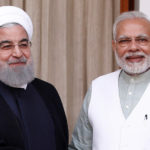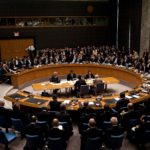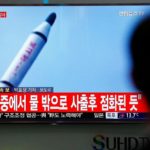Category: FOREIGN POLICY & SECURITY
Expert views on the Indo-Pacific: Implications for Canada

Why is it important for Canada to engage in the Indo-Pacific? What is the role for Canada therein? And how do partners like Japan and Australia view this crucial geostrategic region? To get a better sense of the Indo-Pacific, it’s implications for Canada, its different concepts, interpretations, and more, the Council on International Policy (CIP) hosted an expert webinar conversation on March 25, 2021 with Hideshi Tokushi, Thomas Wilkins, Stephen Nagy, and the CIP’s own Jonathan Berkshire Miller.
U.S. Foreign Policy in Syria: Why Action is Needed Now to Rehabilitate and Reintegrate Children Exploited by the Islamic State

Cecilia Polizzi writes that any new strategy by the United States that fails to address the victimization and exploitation of children by Islamic State and does not embrace a long-term sustainable rehabilitation and reintegration strategy will lead to instability and inability to contain a resurgent IS.
Implications of the Proposed China-Iran deal for India

Sruthi V S provides analysis of the implications on India’s foreign policy of Iran and China’s new deal.
North Korea’s Monolithic System & the Juche Ideology

Ian Fleming provides his perspective on the Juche Ideology’s impact on North Korea’s nuclear proliferation.
COVID in Africa: A Long-Term Relationship

The impact of COVID-19 in Africa is likely to be particularly grim, with or without standard containment measures. Dr. Alexandra de Sousa provides her perspective on why the region must craft a well-balanced, contextualized approach, while negotiating access to medical solutions.
Debt Relief and a New Era in Canadian-African Relations

Michael Belafi highlights opportunities for Canada to expand its ties with Sub-Saharan Africa in his analysis for the Foreign Policy Project.
The UN Security Council is Failing – Why Reform is Needed Now

In this piece for the Foreign Policy Project, Breanna Reynolds highlights the need for reform within the UN Security Council, particularly as challenges to international security have become more complex than ever.
U.S. Position in Rohingya Crisis Echoes Past Inaction

In her contribution to the Foreign Policy Project, Gwyneth Bernier highlights U.S. inaction in protecting the Rohingya from genocide.
Strengthening Sea-Based Nuclear Deterrence: North Korea Moving Towards Assured Second Strike Capability

North Korea is making strides in developing survivable nuclear forces, one in which its new SLBM plays a crucial component. Given the difficulties in detecting ballistic missile submarines, SLBMs are arguably the most reliable leg of Pyongyang’s a nuclear deterrent force. CIP Non-Resident Fellow Debalina Ghoshal provides analysis in her latest contribution.
What to Make of the Government’s Decision not to Extend its Mission in Mali

CIP Fellow Basel Ammane provides analysis on Canada’s decision not to extend its UN mission in Mali.
